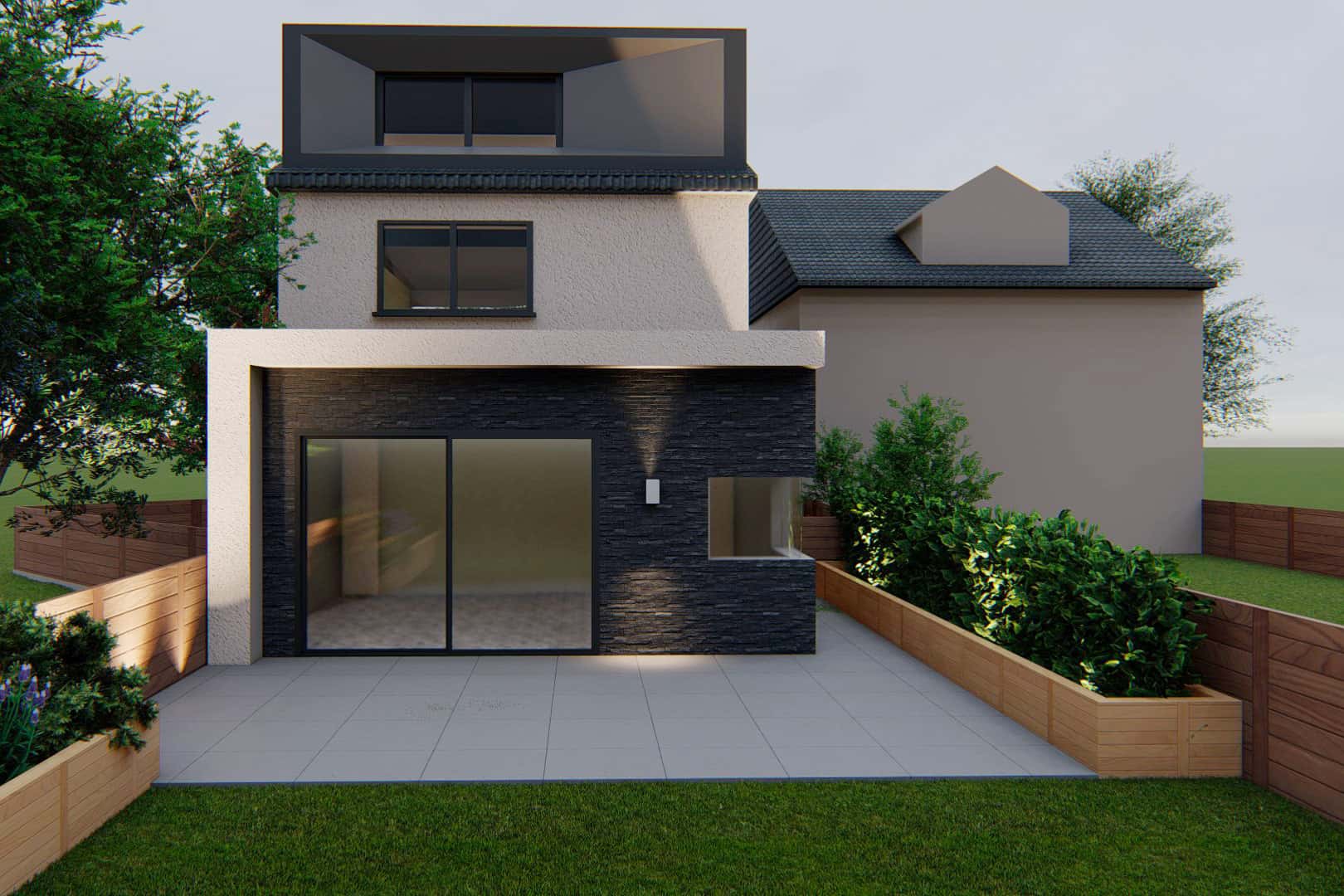Private Building Control Vs Local Authority Building Control: A Guide
To undertake any significant modification to your home, whether it’s an extension, renovation, and even new builds, you will need to seek building control approval to ensure it's up to par with the building regulations.
You will need a building control inspector to approve your building regulations and sign off certificate to the council. To do this you can go one of two ways, either private building control or through local authority building control. We’ll explain both.
To get this, you can either go down the route of using local authority building control, or you can use private building control to formally approve your house extension and issue a certificate to the council.

What Is Private Building Control?
Private building control is carried out by approved inspectors who are registered to carry out the same functions as local authority inspectors. A private building control inspector will check that your work complies with Building Regulations by visiting the site at key stages of construction, such as foundations, drainage, insulation, and completion.
Many choose private building control inspectors for:
- Faster response times
- More flexible scheduling
- Practical, solution-focused advice
Whether you go through the council or use a private building inspector, the legal standards are the same. However, with private firms, you’re often getting more personalised and responsive service.
The Role of the Private Building Inspector
Private building control inspectors and local authority building inspectors must both adhere to the same set of building regulations – and ensure that your project does the same.
While many people automatically think of their local council when it comes to building inspections, you also have the option of using a private building inspector—also known as an independent building inspector.
If you’re searching for a ‘private building inspector near me’ or you want to go through the local authority building control route, they follow the same set of standards and practices. Both will need to sign off on the technical drawings for your build and to make site visits to your project at certain points.
The idea is that the inspector can advise your builder and ensure that the work is progressing in line with regulations – which could save you expensive remedial work at a later stage.
The Differences Between The Two Processes:
What is the difference between the local authority building control vs private approved inspector, although they have to follow the same rules and regulations, there’re still some differences between them. One being the application process is a bit different.
With complete private building control, they will apply for approval. They must also give ‘initial notice’ to the local authority, letting them know about your building project.
Upon completion, the private building inspector will issue a completion certificate, which is a final certificate to the local authority to confirm the work has been completed in line with building regulations.
If you use a local authority building control inspector, you’ll need to apply yourself for approval via the government planning portal.
Why Choose A Complete Private Building Control Inspector?
Choosing a private building control inspector will more often than not provide you with a highly dedicated and hands on service, visiting you at every stage throughout the project. This is especially useful for more complicated builds. What’s more, you can choose an inspector with specialist experience, which can be particularly useful if your project has specific unusual aspects to it that might require niche knowledge and experience. Contact and Find out about the private building control near you.
Why Choose A Local Authority Private Building Control Inspector?
Similar to a private building control inspector who might have a specialist field, a local authority inspector will generally cover a smaller geographical area than an independent one. This is an advantage to consider when choosing your total building control inspector, as they may have more detailed knowledge of the local area and any ground conditions or geological issues that might be relevant.
The local authority inspector also has the power of enforcement – unlike an independent building inspector – so if there are problems with the build, they can resolve it directly. Whereas, a private inspector would have to hand it over to the local authority at this stage.
Total Private Building Control Inspector Costs / Fees
On a broad level, there shouldn’t be that much difference between the costs of a private or independent building control inspector and a local authority one – the biggest variable in cost will be the size and complexity of your own building project.
One difference between the two, however, is that private inspectors quote on a job-by-job basis, while local authority inspector fees are published via the council’s website.
Ultimately, both ways of complying with building control inspection follow the same sets of rules, so both should result in a properly certified house renovation. Which way you choose to go will depend on the specifics of your build as well as your personal preference.
Local Authority Building Control Warranty (LABC)
A building control warranty, otherwise known as a structural warranty is one that protects the owners against damages and defects, usually for up to 10 years after completion. This relates particularly to new builds.
Along with building regulation approval, it is recommended that you purchase structural warranty before construction begins.
What does the Local Authority Building Control Warranty Cover?
Naturally, what the structural warranty will cover varies depending on the provider, it’s important that you do your research beforehand to know which warranty suits you best.
Some of the things that would typically be covered with most providers include; Deposit protection, defects insurance, structural insurance, cover for contaminated land and building control cover.
Deposit protection provides cover for your homeowners deposit, in case development should cease at some point during construction.
Defects insurance holds the builders accountable for minor and non structural issues, such as window leaks and non compliance with the warranty providers technical guidelines. This is valid only for two years after construction is complete.
Structural insurance as its name suggests covers any structural damage that may occur after 2 years.
Building Control Cover comes into effect if building regulations are not followed properly and there’s a misuse of materials that may be hazardous to the building owners.
Why do you need a warranty?
With the costs of the build, as well as the building control inspector, whether it’s a private building control inspector or one from the local authority, it might seem like an extra burden to pay for the Local Authority Building Control warranty, however, builders can’t completely guarantee that there won’t be any issues. This warranty protects you from any unforeseen problems down the line, for at least 10 years.
Another reason to invest in a structural warranty is that it gives you more leverage if you want to sell it after its completion. A lot of banks and mortgage companies will require a structural warranty to be put in place before they approve a mortgage on the property.













